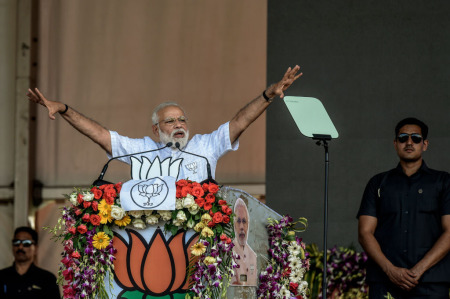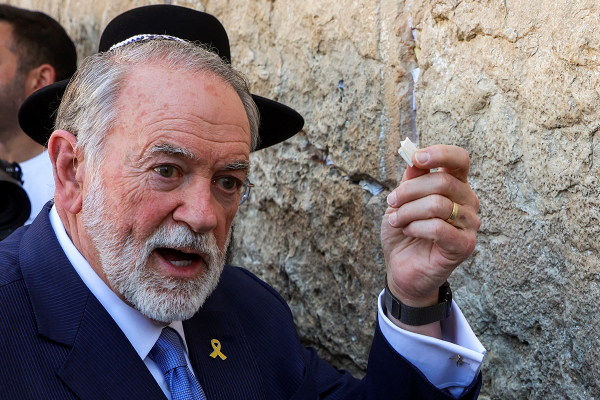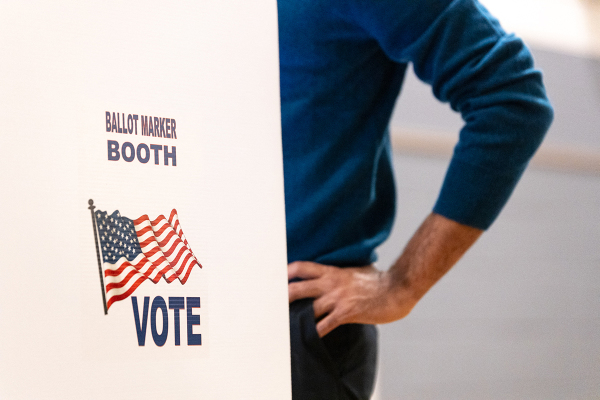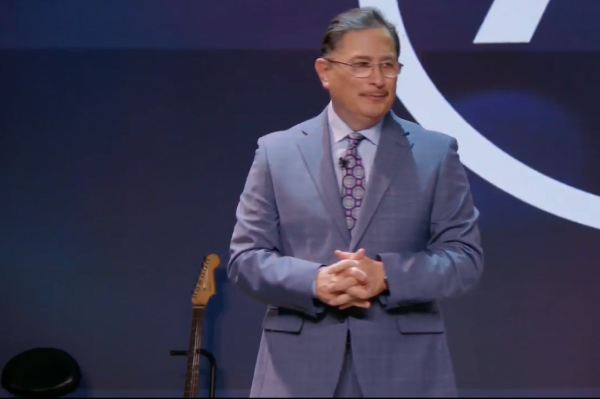USCIRF fears India creating 'religious test' for citizenship as protests against bill erupt

The U.S. Commission on International Religious Freedom is speaking out against a bill passed in India’s lower legislative house and is accusing the Modi government of trying to create “a religious test for Indian citizenship” in the majority Hindu nation.
Protests have erupted in India’s northeast with demonstrators burning effigies of India’s president following the passage of the controversial Citizenship (Amendment) Bill in India’s Lok Sabah.
The congressionally mandated bipartisan commission recommended Monday that the U.S. State Department consider issuing sanctions against Home Minister Amit Shah and other government leaders should his CAB bill pass in India’s upper legislative house (Rajya Sabha).
Shah also serves as president of the Bharatiya Janata Party, a Hindu nationalist party aligned with the Rashtriya Swayamsevak Sangh. Since BJP came to power in 2014 under President Narendra Modi, Hindu persecution against religious minorities including Muslims and Christians has dramatically increased.
Shah’s bill would change India’s 1995 citizenship law to allow citizenship to be given to persecuted minorities from Bangladesh, Afghanistan, and Pakistan who came to India before 2015. Persecuted minorities recognized by the bill include Hindus, Sikhs, Christians, Buddhists, Jains and Parsis. However, the bill excludes Muslims.
Critics fear that the bill could open the door for Hindu migrants from Bangladesh to make their way into the northeast.
“The CAB enshrines a pathway to citizenship for immigrants that specifically excludes Muslims, setting a legal criterion for citizenship based on religion,” a USCIRF statement reads. “The CAB is a dangerous turn in the wrong direction; it runs counter to India’s rich history of secular pluralism and the Indian Constitution, which guarantees equality before the law regardless of faith.”
USCIRF notes that the BJP included the passage of the legislation as part of a manifesto released ahead of its electoral victory in May 2019.
The bill comes as the BJP government excluded nearly 2 million people from citizenship in its northeastern Assam state in August. The government said its aim was deporting undocumented immigrants from neighboring countries. However, some felt it was aimed at deporting Muslims, which comprise about a third of the state’s population.
“In conjunction with the ongoing National Register of Citizens process in Assam and nationwide NRC that the Home Minister seeks to propose, USCIRF fears that the Indian government is creating a religious test for Indian citizenship that would strip citizenship from millions of Muslims,” USCIRF warned.
On Tuesday, an India Ministry of Internal Affairs spokesperson responded to USCIRF’s claims, calling them "neither accurate nor warranted.”
“The bill provides expedited consideration for Indian citizenship to persecuted religious minorities already in India from certain contiguous countries,” MEA spokesperson Raveesh Kumar said, according to India Today. “It seeks to address their current difficulties and meet their basic human rights. Such an initiative should be welcomed, not criticized by those who are genuinely committed to religious freedom.”
The MEA further accused USCIRF of choosing “to be guided only by its prejudices and biases.”
"Neither the Citizenship (Amendment) Bill nor the National Register of Citizens process seek to strip citizenship from any Indian citizen of any faith," the MEA spokesperson added. "Every nation, including the U.S., has the right to enumerate and validate its citizenry and to exercise this prerogative through various policies.”
Parliamentarian Shashi Tharoor, a member of the Congress Party, called the legislation an “assault on the foundational principles of Indian democracy.”
“For the first time in 72 years, we have a law that singles out one community for exclusion,” he said during an interview with India Today.

More than 1,000 people have protested against the bill in the last few days.
On Monday, hundreds took to the streets in Assam to protest the bill, according to Reuters. The demonstrators in the northeast state blocked roads burned tires and even graffitied walls with slogans against the proposal.
According to the news agency, student groups led a dusk-to-dawn shutdown of four districts in the state, closing businesses, educational and financial institutions and public transportation.
“We will fight and oppose the bill till the last drop of our blood,” All Assam Students’ Union advisor Samujjal Bhattacharya told Reuters.





















